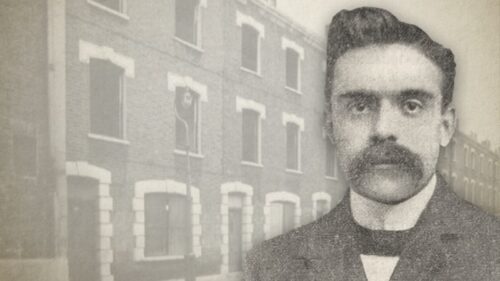William Gadsby
William Gadsby (1773-1844) was a Strict and Particular Baptist preacher, writer and philanthropist. For thirty-nine years served as pastor for the church meeting at Black Lane, Manchester.
William Gadsby Sermons (Complete)
William Gadsby Hymns
William Gadsby, Perfect Law Of Liberty (Complete)
William Gadsby's Catechism (Complete)
William Gadsby's Dialogues
William Gadsby's Fragments (Complete)
William Gadsby's Letters (Complete)
-
Gadsby’s Convictional Statement Of Faith
William Gadsby (1773-1844) was a Strict and Particular Baptist preacher, who for thirty-eight years served as pastor for the church meeting at Black Lane, Manchester. His son John (1808-1893) was an author and printer, who in 1835 started a new religious magazine entitled, “The Gospel Standard, Or, Feeble Christian’s Support.” He immediately gained the help of his father, together serving as its first Editors. The first Issue of the magazine was printed in August 1835, beginning with an “Address” to the “Christian Reader”, the content of which sets forth the articles of faith drawn up and embraced by the Editors (most likely the convictional statement of William Gadsby):
-
William Gadsby’s Sentiments On The Eternal Sonship
My dear Friend,—It is not a little which surprises me now-a-days; but I certainly was surprised to hear from you, on my return from Egypt, that persons were going about circulating the report that my late dear father did not believe in the Eternal Sonship of the Second Person in the Trinity; and, had I not known something of the pride and doggedness of the parties making the remark, that surprise would have been greatly increased upon hearing, as I did a few days ago, that at an assembly of "divines" at Hitchin it was asserted that "Mr. Gadsby had more sense than to believe such nonsense." Now, there was no doctrine in the whole Bible about which my father was more tenacious than that…
-
A New-Year’s Gift For The Seed-Royal
A Dialogue Between Speaktruth And Thoughtful “Blessed be the God and Father of our Lord Jesus Christ, who hath blessed us with all spiritual blessings in heavenly places in Christ."—Ephesians 1:3SPEAKTRUTH: Where now so early this morning, friend Thoughtful? THOUGHTFUL: Indeed, friend Speaktruth, I can scarcely tell you: for the truth is, I am going with the rest of my shop-mates a new-year's gifting, and our master's connexions are so extensive, that I expect we shall go to many places that I know nothing of at present. SPEAKTRUTH: I sincerely wish that what you get may be of real service to you, and not prove a means of leading you into a snare. I should be thankful to see the working-people well laden with what…
-
Introduction
The following treatise is the substance of eleven sermons preached at the Baptist Chapel, St. George's-Road, Manchester. If the author know his own heart, his design in publishing this tract is not to gratify the curious, to amuse the carnal mind, to bolster up the self-righteous in a false hope, nor yet to encourage an Antinomian presumption. He hopes that he has not so learned Christ as to be pleased with anything so opposite to the honour of the dear Redeemer. His design is, to glorify God in the real comfort and edification of his blood-bought family, and to clear the blessed gospel of those blasphemous aspersions which men have cast upon it. How far this end may be answered, he must leave to the…
-
1 What Law Is Not Here Intended
"But whoso looketh into the perfect law of liberty, and continueth therein, he being not a forgetful hearer, but a doer of the work, this man shall be blessed in his deed.”—James 1:25 This chapter abounds with wholesome instruction; and whoever reads it, under the teachings of its Divine Author, will have great reason to bless God for its seasonable contents. But my intention, at present, is not to enlarge upon the chapter, but to make a few remarks upon the verse before us as a text; in doing which I will, as far as the Holy Ghost shall be pleased to assist, First,—Endeavour to show what law is not here intended. Secondly,—What law is intended. Thirdly,—Why this law is called a law of liberty.…
-
2 What Law Is Intended
"But whoso looketh into the perfect law of liberty, and continueth therein, he being not a forgetful hearer, but a doer of the work, this man shall be blessed in his deed.”—James 1:25 In showing what law is intended in the text, I shall say that it appears to me to be the glorious Gospel of God our Saviour, which comprehends all the glorious doctrines and promises of love, grace, and mercy; with all the truths connected with, and discovered in, the complete salvation of helpless sinners. A gospel replete with blessings unspeakable and full of glory! and of which Christ is the sum and substance; for without, or separate from, Christ there is no gospel. But in speaking upon this part of the subject,…




